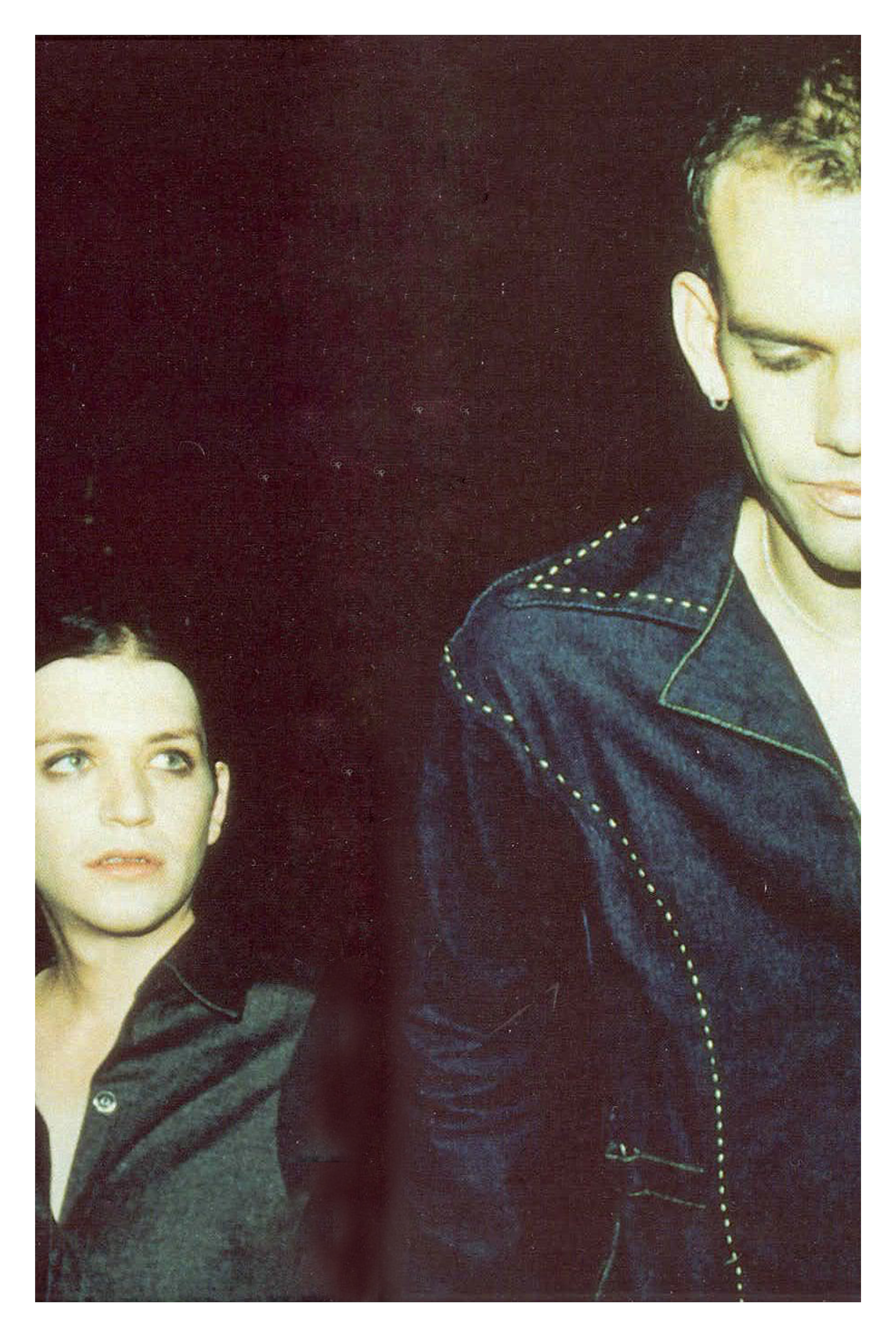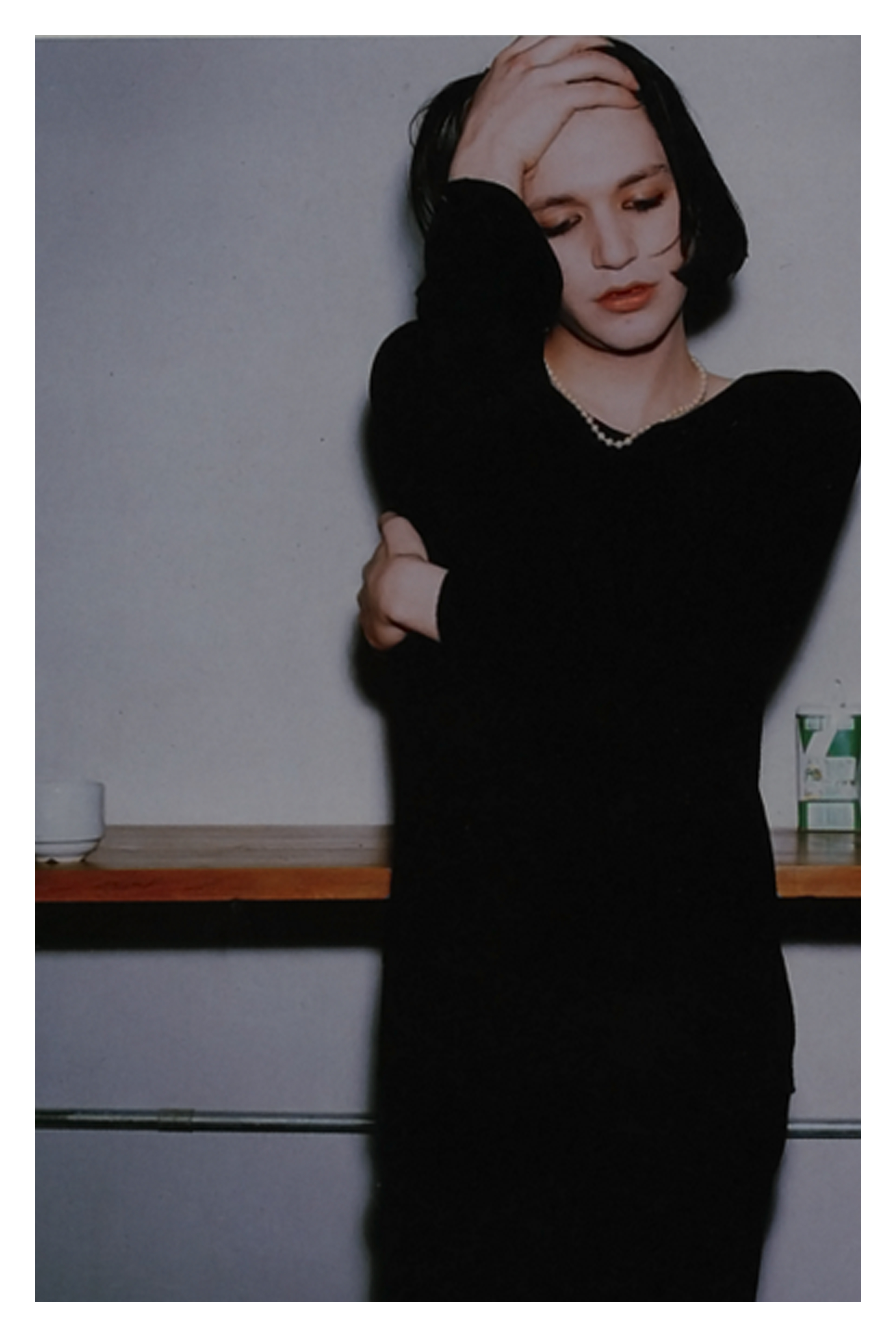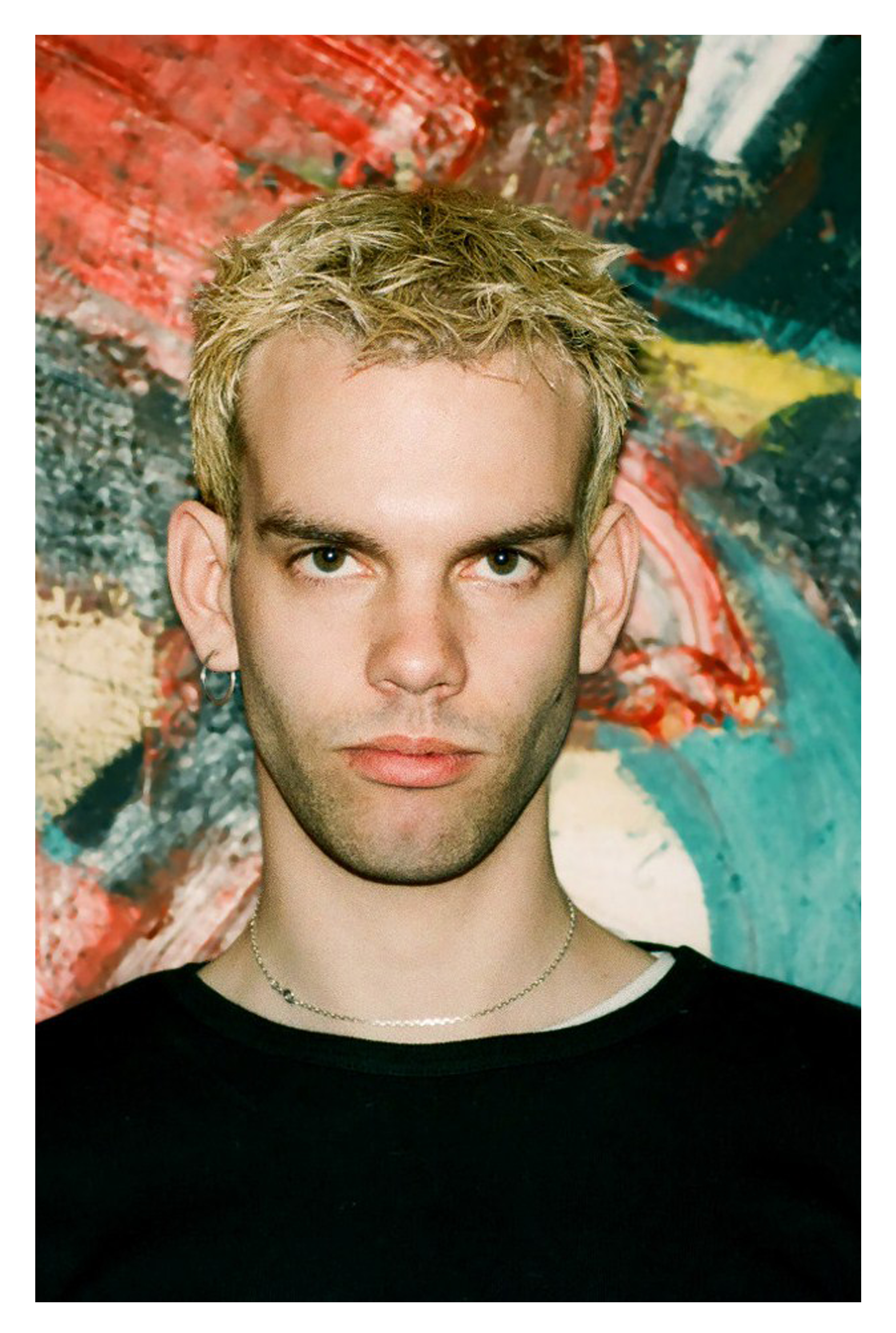Placebo introduced the world to Without You I’m Nothing with the music video for “Pure Morning”, in which frontman Brian Molko plays a character who seems to be toying with the idea of throwing himself off the roof of Savoy Place. Police cars fill the pavement below, reporters address their cameras, crowds of people look up. Then he lurches forward and falls for a few seconds before calmly walking down the side of the building.
“It’s a song about coming down when the rest of the world is waking up,” Molko explained to Billboard at the time. “How many times have you come out of a club when the sun is coming up and others are going to work? You feel dislocated. You just want someone to slip their arm around you and make slumber easier.”
Videos by VICE
Both the song and video set the tone for the rest of Without You I’m Nothing – an album that concerns itself with impulse and the periods of reflection that follow it. Written largely about drugs and intimacy and the ways in which those things can intersect, especially within queer spaces, Without You I’m Nothing takes an intense and sometimes dark look at desire. Heartbreak and heroin weave in and out of each other thematically in “My Sweet Prince”, while that feeling of the floor dropping out from under you that often accompanies addiction – whether it’s to a feeling given to you by a person or a substance – is something that runs through the whole album. Without You I’m Nothing is simultaneously harsh and tender, peeling back the bratty distortion plastered over their self-titled debut to address the sores themselves.
Without You I’m Nothing achieved a massive amount of commercial and critical success. It’s sold over a million albums to date and “Every You Every Me” appeared on the soundtrack to Cruel Intentions – the most twisted romance film of the 90s. Despite its mainstream appeal, though, Without You I’m Nothing remains, as NME’s James Oldham put it at the time, a record “made by freaks for freaks”. With Molko and bassist Stefan Olsdal being openly bi and gay respectively, Placebo’s music has always been coded as queer and, along with their increasingly genderfluid appearances, never shied away from actively presenting itself as such. Of all their eras, Without You I’m Nothing was especially significant for fans who shared the same feelings of otherness that crystallised both sonically and visually on the album.
Without You I’m Nothing turns 20 this month and remains one of the most beloved additions to Placebo’s 22-year long career. To commemorate its anniversary, the band launched a site compiling memories from fans. Some have posted fan art, while others have posted pictures of their toenails painted black in homage to the “Pure Morning” video. There are retellings of how someone met their partner or best friend at a Placebo show, and photos of personal tokens – old merch, customised pendants, tattoos – that symbolise a connection to the album. Someone also posted a box of hummus-flavoured condoms, whatever that means. I’m not here to judge.
Looking back on the album, we spoke to Stefan Olsdal about intimacy, otherness and sticking to your convictions – all things that helped pack Without You I’m Nothing with enough gut punches to stand the test of two decades.

Noisey: You seem to be celebrating the anniversary of this album more than others. Would you say it’s a fairly reflective one?
Stefan Olsdal: Yeah, I think so – it explores some pretty dark themes. We weren’t the most balanced and maybe not the best prepared to process those emotions, and everything that was going on around us. I think a big side of Placebo was – and still is – about a certain vulnerability in terms of the lyrics and the way that we chose to talk about who we were, and who we are, as people. We never really felt like we were part of some kind of lad culture or a part of a movement. We were these odd little ex-bedroom musicians who never really had any friends [laughs].
Do you see that ‘otherness’ reflected in the kind of people who tend to gravitate towards your music too?
Around the time of Without You I’m Nothing, I think Placebo shows started to become this place and safe space for kids who didn’t feel like they fit in. We were definitely pushing the way that we were dressing ourselves, to a place which was slightly more fluid in terms of identity and gender identity and sexual preference, during the heady and hormone-fuelled early twenties we were still in.
Drugs and sexuality were very much at the forefront of pop culture in a commercial sense at the time, with the eruption of all these virginal female pop stars and heroin chic happening in the fashion world. But they were rarely explored the way Without You I’m Nothing presented them, which was super dark and introverted – not just in the lyrics but in the sound as well. Was that something you were cognisant of back then?
That’s a good point. We went really, really deep in. Like the title says, I am nothing without you. It’s pretty extreme. A lot of it was what it’s like to be in love. Exploring human relationships, the depths and the despair that they can bring you to, and the dependency on someone – or, alternatively, something. It was a time of having a Union Jack emblazoned on your guitar – go to the pub, write a few songs then go up on stage – and that wasn’t really our scene. We were being pulled in all sorts of directions in terms of what the [music industry] does to a band with success, so we really had to be on the same page. The nature of it felt very ‘us against the world,’ and I think in some ways the music was a chance for us to process it all.

You did and still do stand in stark contrast to a certain kind of British lad culture. Even though you were doing what felt right for you, did it still feel like you were pushing back against something?
That’s an interesting question. I think being quite contrary is in our nature so some level we probably were, but the strongest fuel was adhering to what was us – and that had to come at any price. I remember sitting in an executive office in the states around this time and being sold this whole idea of a fast track to fame. It was like being dangled this massive carrot and, for artistic control and wanting to have things done the way that we wanted to, we said no to a lot of opportunities that perhaps could have served us. But we were this kind of art house mafia, we had to stick to our ideals. We would die for it, basically. It was that serious. We probably made a lot of enemies along the way, stepped on some toes. We would laugh about a lot of things but when it came down to Placebo – what we do and what we stood for – it was deadly serious.
How do you think the landscape of music has changed now, in relation to expressions of gender and identity?
Obviously there’s areas where it’s not as safe, but I think generally it’s become a safer space to explore identity and for it to feel like you’re less alone in the way. That was the killer, and still is a killer – feeling alone in what you’re going through.
When the band was starting, I found it hard to find others. I was out then but it was still hard to find other people who were in the same situations as me. Now, the stigma is breaking down [across] the whole spectrum from identity all the way to mental health issues. There’s help for musicians now if you’re going through a real rough patch. If there was something like that around back then I certainly would have used it. We had to figure everything out for ourselves, pretty much, and there wasn’t a lot to hold on to or [opportunities] to connect with other like minded people. Now it’s a safer and less lonely place in terms of trying to find out who the hell you are.

Even though you’re playing much bigger venues now, do you still feel like your shows are a haven for outsiders the way they were back then?
Placebo shows are always a weird mix [laughs]. It’s like, ‘What is this band? Who’s that tall lanky guy? Look at them on stage singing about all these fucked up topics…’ Certainly, there are people who come to our shows who understand and feel that’s where they have their community. They look out for each other as well. They save each other spaces when they queue outside and there’s a lot of care going on between them. That’s a beautiful thing to hear, but at the same time it’s been 20 years now so a lot of them have started to bring their kids. I’d like to think they’re all leading healthy, balanced lives and being able to raise lovely little kids – future generations of open minded and caring people.
Without You I’m Nothing had a huge amount of exposure, especially with “Every You Every Me” appearing on Cruel Intentions soundtrack. Do you think that commercial success had an affect on the band or that sense of community you were just talking about?
The whole industry, and everything that goes around fame and being in a band, is an enabling machine for the ego, basically. It was like being force fed, like one of those French ducks, so our livers were screaming – literally and figuratively. We welcomed it, because we wanted to be the biggest band in the world, but I think we were racking up hundreds of hours of time with therapists in the future. That’s essentially what we were setting ourselves up for back then. Like I said, we were probably a little bit unprepared for it all and didn’t know how to handle it. And at the same time as looking after each other, we had to deal with inter-band relationships and egos and being to ether all the time. The smallest things can ignite the biggest of rows. But the success also allowed us to start reaching further and further out into the world. We headed out to New Zealand and South America and across the US, connecting with misfits everywhere.

What’s the story behind the artwork, and what was the sentiment behind re-shooting it as part of the anniversary celebrations?
Sarah and Sally, the twins on the cover, run a magazine called Blag, which started in the early 90s. So we’ve been in the same kind of circles since we moved to London around the age of 18. Over the years we’ve been meaning to connect and hang out and see how everyone’s doing and it just never happened. So [re-shooting the album cover] was the perfect opportunity to touch base and reminisce about Corinne Day, who shot the cover and is sadly now passed away. Sometimes it feels like you have to take the time to reconnect with events that are important for you, and this certainly was an important point in our lives and a little bit for them as well. This felt like an important album for a lot of Placebo fans so we wanted to create a space for people to share their memories and what it meant to them, too. We kind of followed our gut with this one, and felt that it was a good time to create a forum for people.
Are there any posts on the site in particular that have stood out to you?
I continually get overwhelmed by what it meant to people. It makes me think back to myself as this lost kid in a lot of ways, hanging on for dear life to the music to make any kind of sense of what was going on in my life. I can see that it mean that much to a lot of people, and that seems to be the general underlying response – that it helped people to get through a certain part of their life, or help them feel less alone. I guess a lot of musicians will tell you that they can’t really create for anyone else, because then it doesn’t become emotionally honest, but when they see how much it means to other people it’s… weird, but great.

Were there any albums you listened to growing up that you cared about the way you see people caring about Without You I’m Nothing ?
I remember being in my late teens, trying to figure out who I was and dealing with my identity on a lot of levels – feelings of loneliness and awkwardness and like I didn’t fit in. Often I’d retreat to my bedroom and just put on Violator by Depeche Mode and that would kind of be the balm on my open rash, something that would soothe the rough times when I felt like I just wanted to bang my head against the wall. I wanted to dress like them, I wanted to hang out with them, I wanted to be them. I got lost inside that album.
You mentioned that you feel like there is more room for fluidity in rock and pop now, which is interesting because while attitudes are changing on a social level it also feels like things are regressing on a wider political level. How do think the relationship between identity and politics has changed since Without You I’m Nothing ?
I think – back then, now, and always – your political movement starts with you. It’s about taking a hard look at yourself, finding out what‘s important, who you are and what you stand for. The way you want to make a better world – just do that on a personal level, do that yourself. I think if each person stands up for what they believe in and holds strong to that and their own identity, in a lot of cases that’s all you can do. When you get to politics with a big P, it’s a whole different ball game. It can start to feel like nothing is worth it and you can’t change anything, but you can change yourself. Make yourself counted.
You can find Emma on Twitter.
More
From VICE
-

Screenshot: Chucklefish -

Photo by Hollandse Hoogte / Shutterstock -

Illustration by Reesa. -

Collage by VICE
